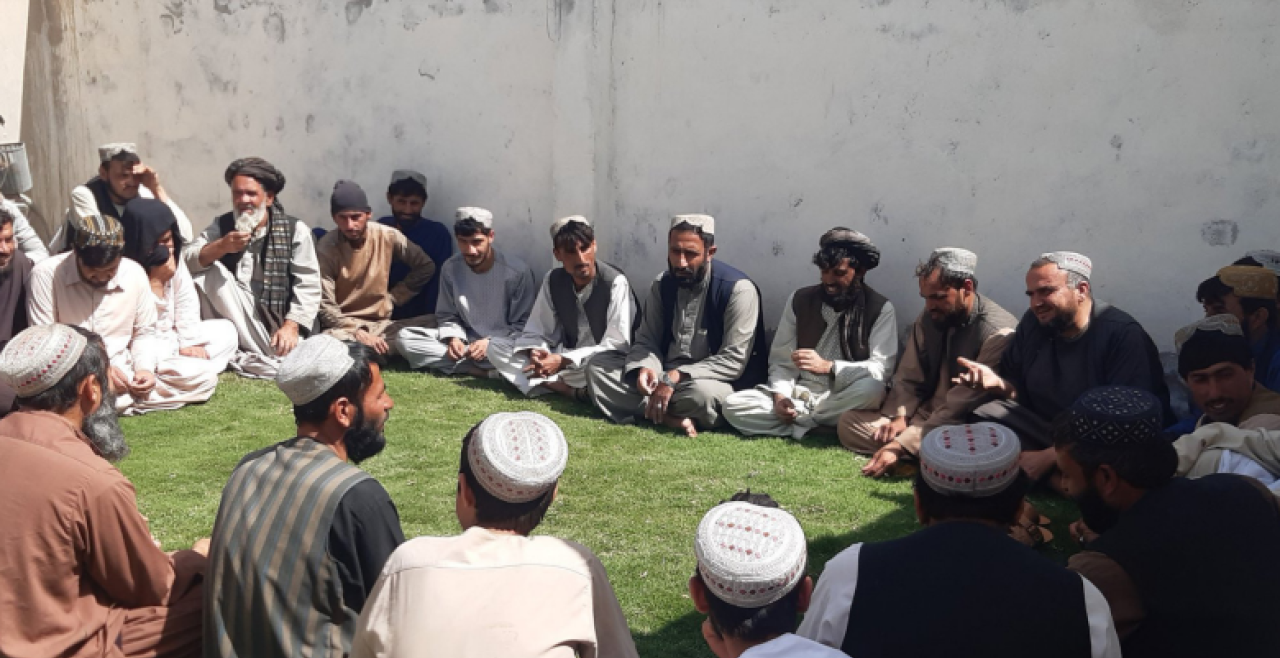Transforming harmful beliefs and norms: Religious leaders addressing gender ideologies in Afghanistan

Afghanistan - In Afghanistan, social norms have a significant influence on the role of women and girls in daily life and how they are treated.
“I learned a lot from this workshop, and I will try my best to start with my own family" - Haki Abdul Jabber, participant
Tradition often dictates that once girls reach puberty, they should leave school and get married. For girls and young women, violence is commonplace, with 80 per cent of women and 72 per cent of men believing that a husband is justified in beating his wife for burning food, arguing, going out without informing her husband, neglecting her children or refusing to have sex. Child marriages are common due to poverty and customs.
Religious leaders have traditionally maintained considerable influence over social and moral values in Afghan communities. Because of this, Spotlight Initiative and UNICEF worked with trusted local partners to establish training for 500 religious leaders across four provinces, so that they might influence change that will prevent violence against women and girls (VAWG).
The training aimed to build knowledge and skills on child protection and the prevention of VAWG. Religious leaders received an introduction to VAWG, how VAWG is viewed by the law and by Islam, and methods for reporting VAWG. Through a mixture of practical activities, theory, group work and case studies, the groups discussed family morals, dangers of early child marriage, and the importance of a harmonious home.
“We will spread the messages about forced marriage and children’s and women’s rights in our masjids to all of our followers.”- Training participant
Programme leaders hoped that participation in the training would encourage participants to train other religious leaders in areas of Afghanistan that are less receptive to work by non-governmental organizations.
Going beyond expectations, the religious leaders incorporated the messages into their local Friday sermons. Maolave Shair Mohammad, a training participant from Daman, said, “We will spread the messages about forced marriage and children’s and women’s rights in our masjids to all of our followers.”
Many of those who participated in the UNICEF training are now interested in refresher sessions that go into more detail on certain topics.
“I learned a lot from this workshop, and I will try my best to start with my own family and teach them how they should take care of women and children,” Haki Abdul Jabber, a Kandahar training participant.
The training also contributed to an increase in the number of women and girls attending safe spaces, set up throughout Spotlight Initiative communities in Afghanistan by UNICEF and local partners. These spaces provide girls and women with a comfortable and safe place to meet outside their homes. At the time of publication, Spotlight Initiative safe spaces are no longer able to operate due to the ban on female aid workers.
UNICEF, however, continues to reach girls and women through important health-related activities, and some safe spaces are still operating outside Spotlight Initiative districts.
Originally published in ‘Together for Change: Documenting the fight to end violence against women and girls in the Pacific, the Caribbean and Central Asia’.
